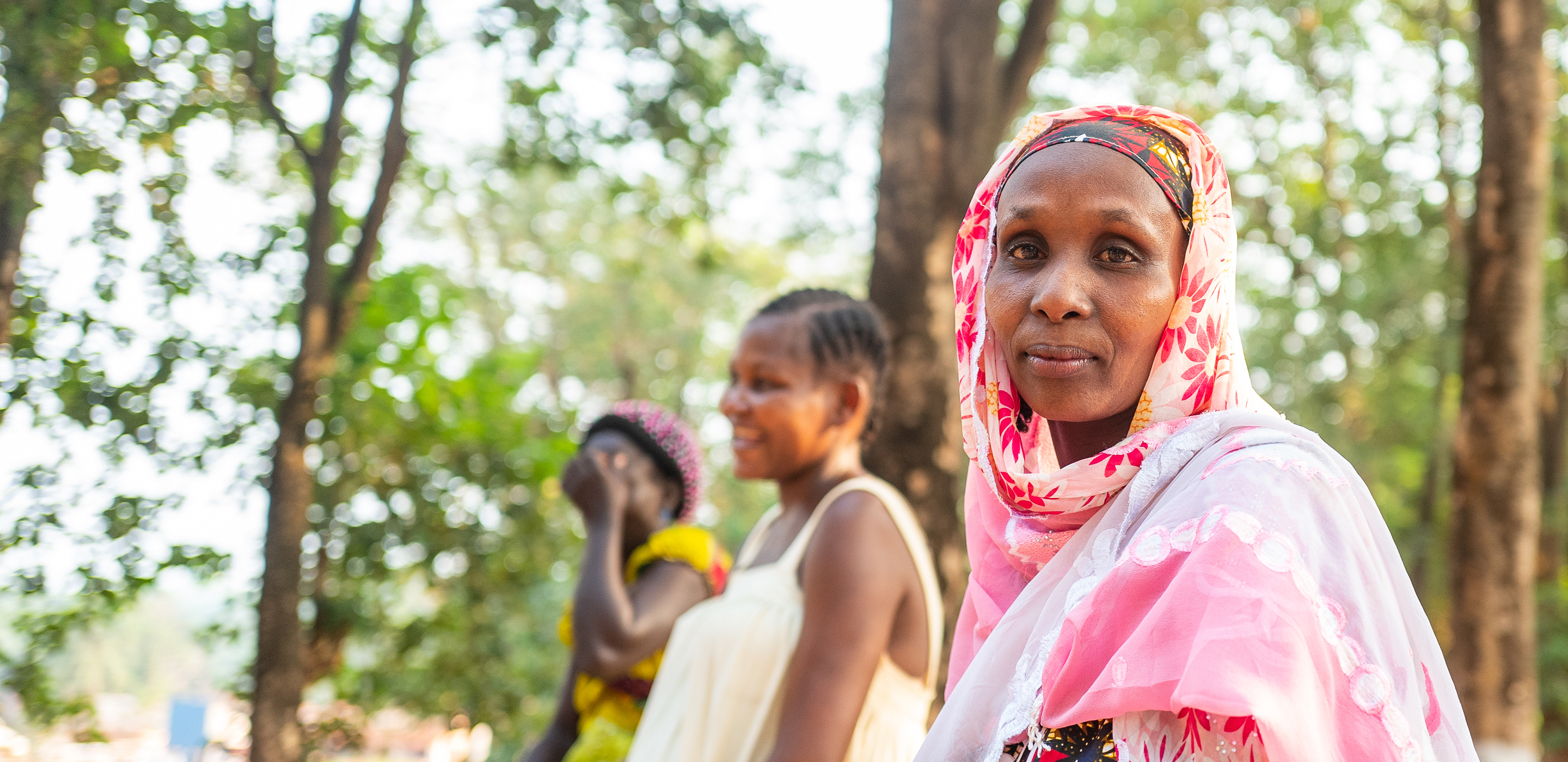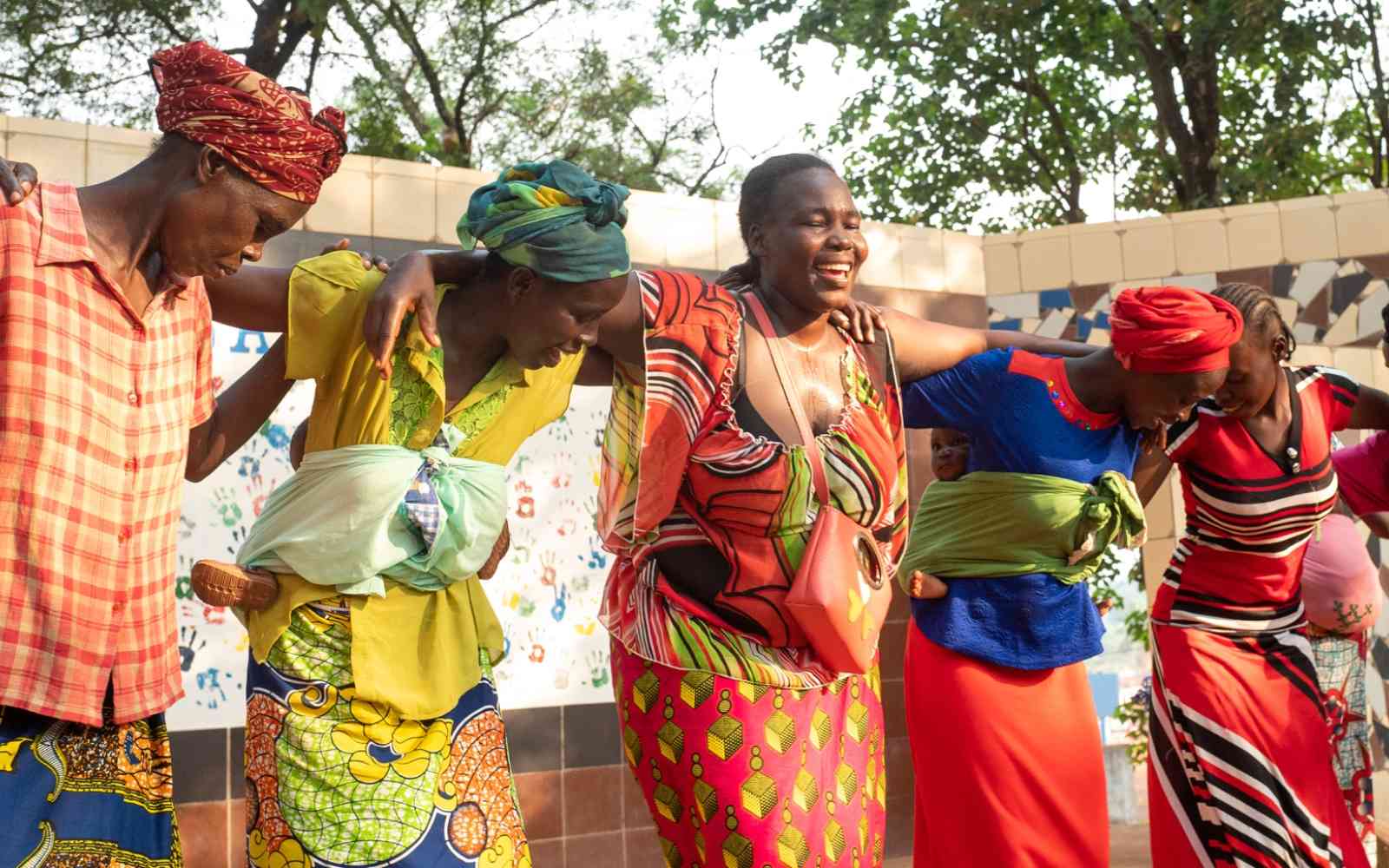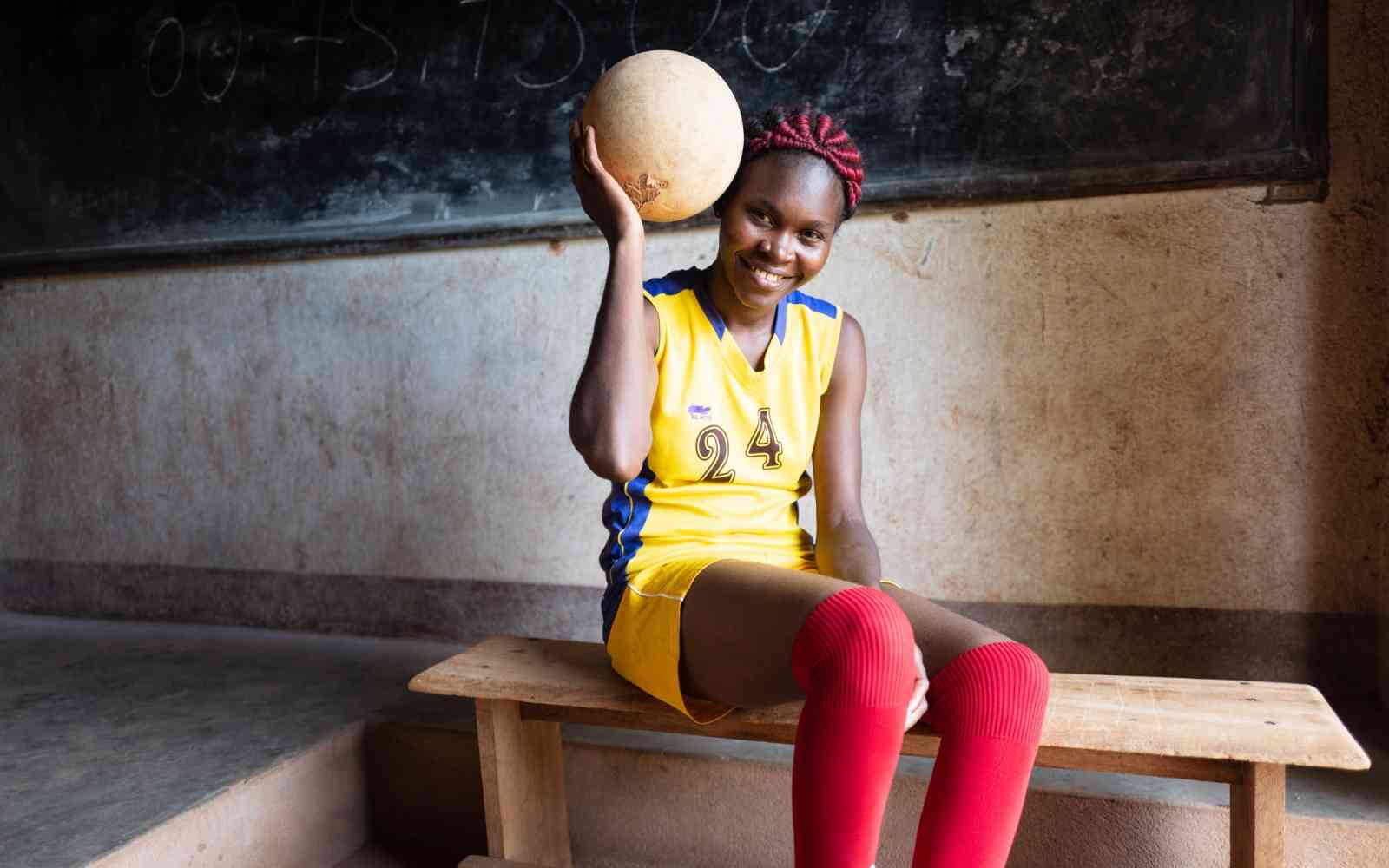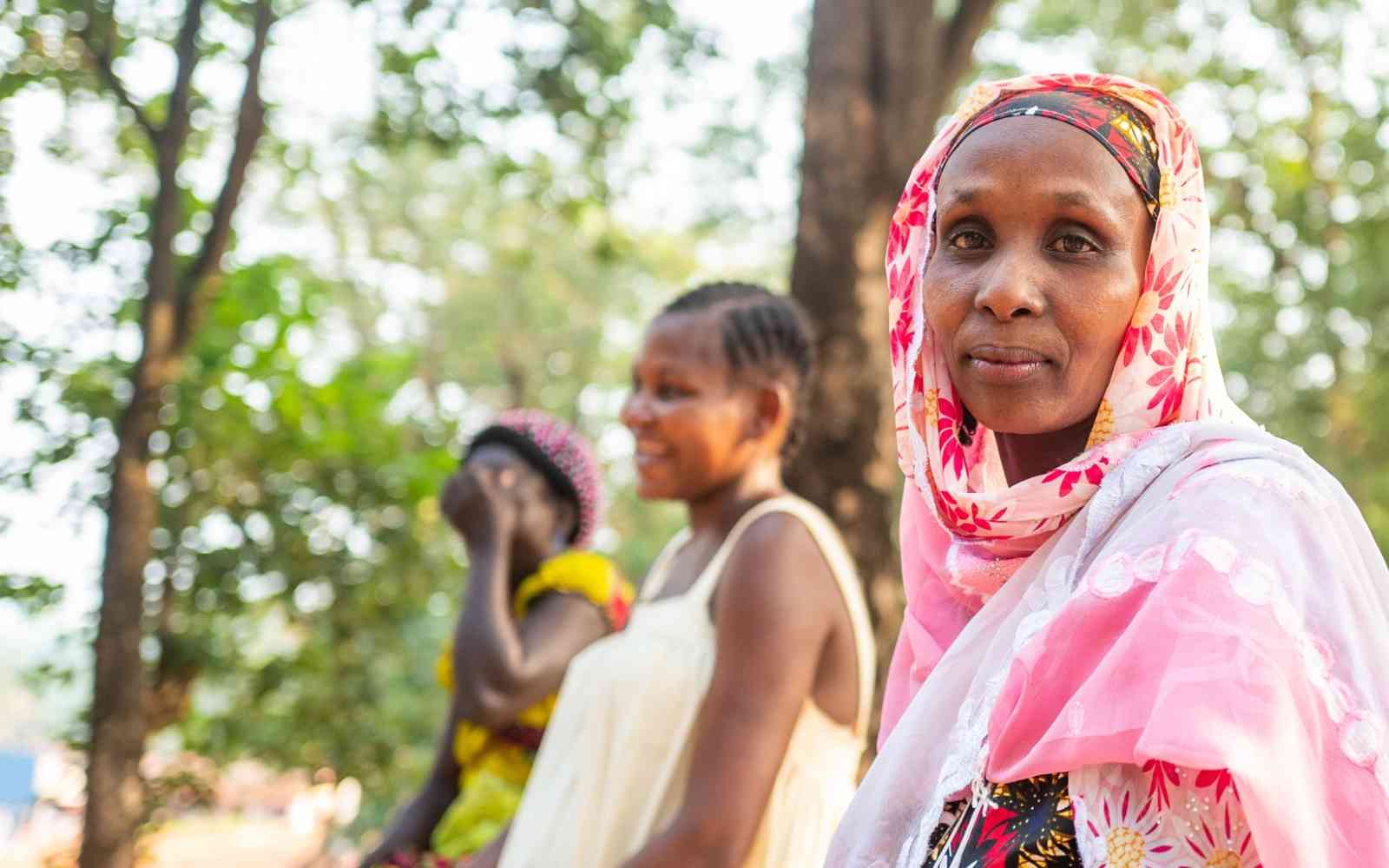The United Nations Office for Project Services (UNOPS)

Helping displaced communities rebuild
Decades of instability have caused untold suffering for people across the Central African Republic. In the first of a three-part series, we explore how a cash transfer programme is helping to improve living conditions and reduce poverty.
“Under unimaginable gunfire, we ran and continued running.”
In the middle of the night, Erica Lemdja and her family were forced to flee their home when armed groups began attacking their village. After running a little more than 20 kilometres they stopped to catch their breath, only to realize one of their children had been left behind in the chaos. “My husband decided to go back to find our youngest child,” recalls Erica. That would be the last time Erica would see her husband.
After fighting escalated between various armed groups in 2013, some 60,000 people fled the surrounding villages of the town of Paoua in the north west of the Central African Republic. “The killings drove us to flee to Paoua – without clothes, shoes, nothing,” recalls Erica.

When Erica and her children arrived in Paoua, after fleeing on foot for almost 40 kilometres, they took refuge with a relative. “They gave me food, clothes and helped me to forget a little about the death of my husband. I still suffer though because I lost a part of me,” she says. Erica was eventually reunited with her youngest child, who had managed to escape with another family also fleeing the violence.
To help people like Erica recover, a World Bank-funded programme is supporting people who have been displaced by conflict by providing regular cash payments to around 15,500 households. This enables families across the country to meet their daily needs and gradually rebuild what they have lost.



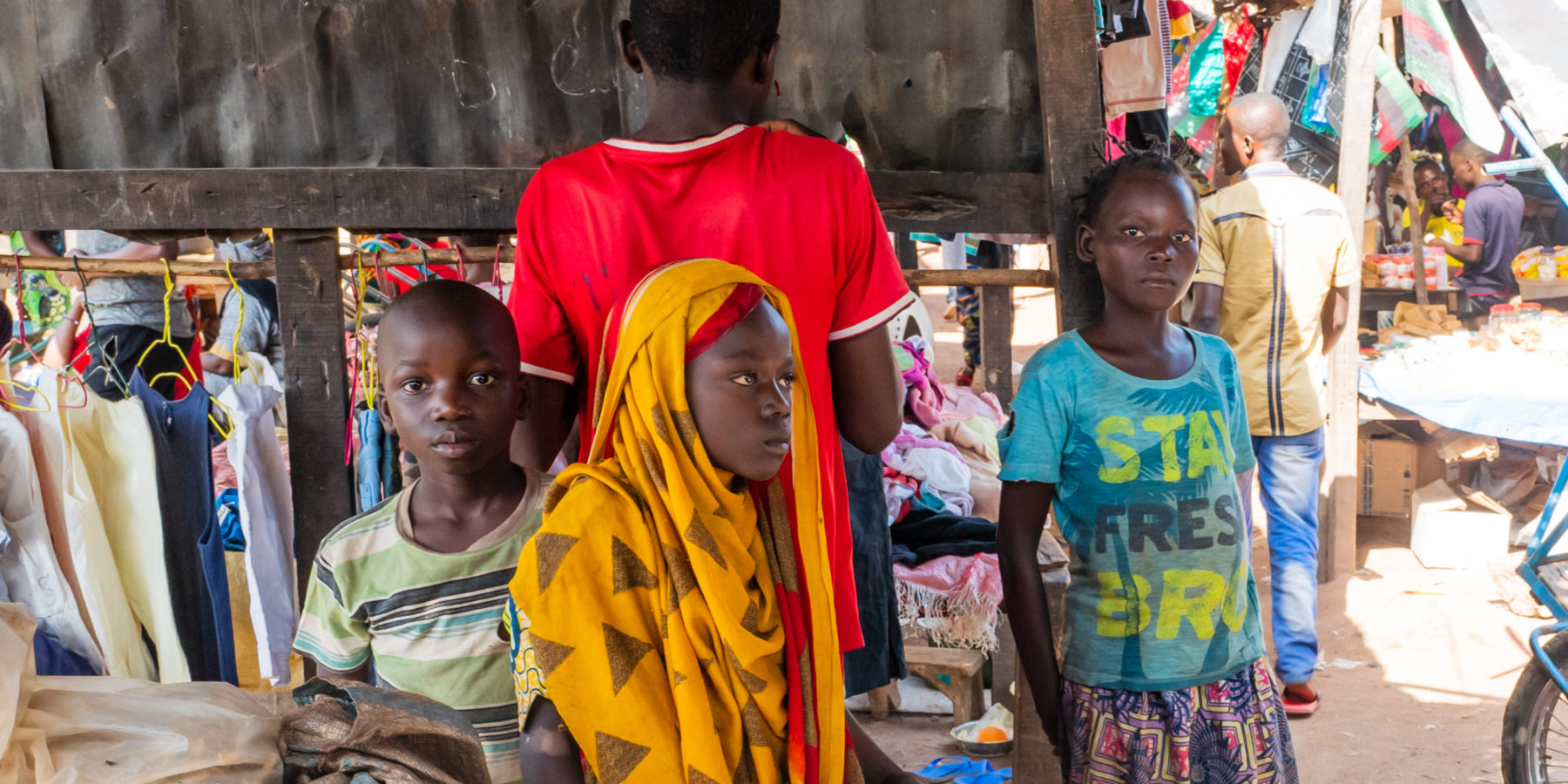
“Giving cash to people allows them to make their own decisions. It enables them to regain their independence and it helps boost the local economies,” says UNOPS Project Coordinator Gael Perpignand.
After receiving financial aid through the programme, Erica has since been able to return to her village with her children. “With the money I saved, I set up a market stall selling legumes. I am able to look after my children and pay for their education,” she explains.
Selected households receive a total of eight cash payments. Biometric data is used to identify recipients and ensure payments are made correctly. Every recipient must show an identity card and provide their fingerprints before receiving a payment.
“I know it’s only the beginning, but it is doing a lot of good,” says Marcel Didier Gueret, the head of cash transfers at the government’s Ministry of Humanitarian Action and National Reconciliation. “They lost their homes [and] their personal property. Now, they can recover what they lost,” he adds.
About the project
The 'Support to Communities Affected by Displacement' (PACAD) project is a $42 million programme funded by the World Bank in partnership with the government of the Central African Republic. Implemented by UNOPS, it is divided into three areas: infrastructure, cash transfer and community mobilization. Each component aims to address the basic needs of displaced communities in seven cities and two neighbourhoods of the capital, Bangui, to help improve living conditions and reduce poverty.
Key objectives of the programme are to promote peaceful dialogue among the communities by involving them in the planning, construction and maintenance of infrastructure; improve their access to services; and ensure the most vulnerable people have sufficient financial means to meet their daily needs.









